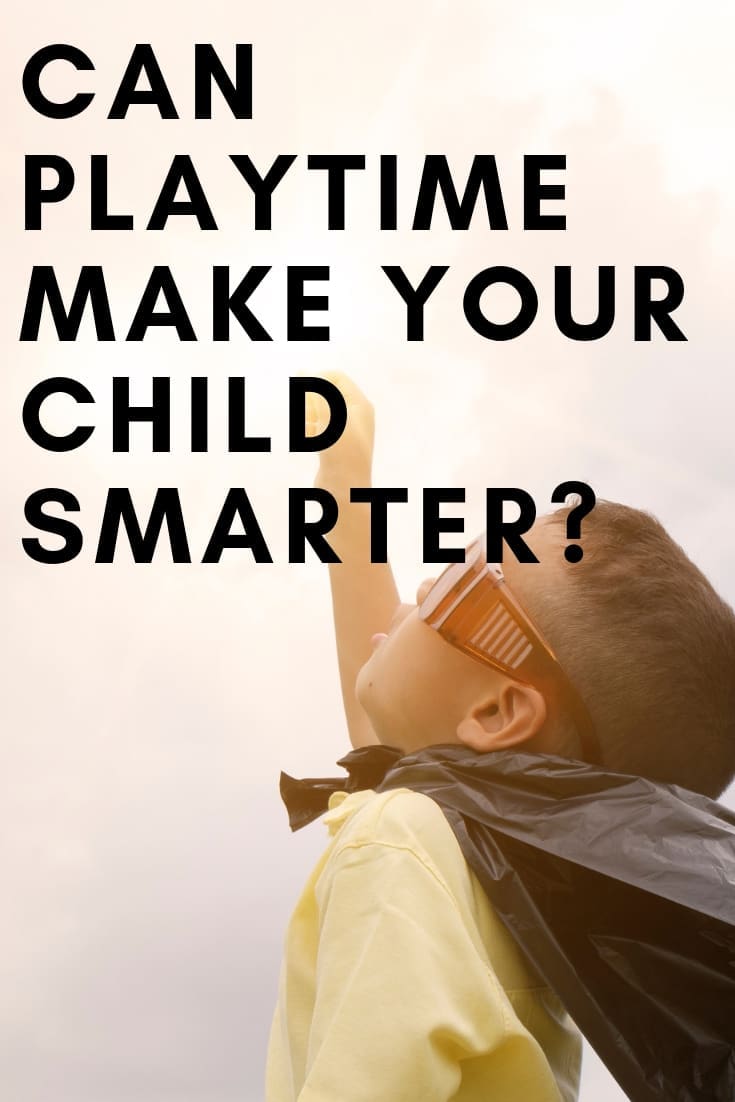Playtime and Promoting Healthy Child Development

Does playtime really promote child development?
Play is very important to childhood development. Recently, the American Academy of Pediatrics released a report on “The Power of Play” recommending that plenty of opportunity for play is given to infants and children. Play is an activity that is voluntary, fun, comes from within the child, and involves active engagement. Since the No Child Left Behind Act of 2001, there has been a decrease in playful learning due to a focus on structured activities that promote academics. Science actually suggests that this focus is misdirected and does not actually result in increased learning.
Can playtime impact your child’s academics?
Playtime isn’t just carefree unstructured activities – playtime actually builds your child’s brain. Play enhances brain structure and function by promoting learning and social behaviors. Brain-derived neurotrophic factor (BDNF), a factor in the brain that promotes growth and development, is stimulated by play. The BDNF actually makes the brain grow and is important for long-term memory and social learning. Even over 400 genes are expressed in the brain after playing for 30 minutes.
Play has been shown to improve early math skills, peer relations, social development, working memory, cognitive ability, and language. Children who had free play at recess actually paid more attention in class. Pretend play also improves social interactions allowing negotiation and cooperation. Physical play also helps promote a healthy weight, immune, endocrine, and cardiovascular system.
When does play begin to stimulate a child?
Play starts with a social smile at 6 weeks of age. Smiling back to your child, then cooing back and forth starts the process of play and language development. Progressing to simple games like peek-a-boo helps infant predict what will happen next. Then allowing a rough-and-tumble play that promotes physical contact allows toddlers to develop coordination and motor skills. Social playtime is anything that involves physical contact, positive emotions, shared stories, and vigorous activities such as jumping, swinging, and chasing, or a similar activity.
Understanding of early brain development indicates that play with active engagement rather than in a seat with drills would actually improve learning. Play should continue all the way through elementary school. Actually, countries that have more recess have greater academic success.
Do I need to buy special toys for my child to play with?
Allowing children to play can actually be very inexpensive. The best objects for play are simple. Blocks, balls, board games, puzzles, and crayons are all good options for play. Even unused cardboard boxes are good objects for play. The cheapest play is just going outside in a safe area.
What if I want to learn more about the importance of play?
Talk to your primary care provider or pediatrician on how you can specialize play for your child. Find a clinic near you at WMMC.com/Family.
Author: Jackie Yates, DO, and Pediatrician at WMMC. Schedule your appointment with Dr. Yates by calling (660) 262-7415.
Source: Yogman M et al. “The Power of Play: A Pediatric Role in Enhancing Development in Young Children” Pediatrics. 2018 Aug 20. Doi:10.1542/peds.2018-2058.
Other Recent Posts by WMMC:
WMMC Receives Recertification for National Accreditation for Delivery of Newborns
Talk2Me, a Mental Health Crisis Texting Hotline
WMMC Announces Women’s Health Ribbon Cutting
About Western Missouri Medical Center
Western Missouri Medical Center (WMMC) is a fully-accredited acute care county medical center located in Warrensburg, MO. WMMC prides itself in emergency care, obstetrics, orthopedic and general surgery, family healthcare, internal medicine, outpatient clinics, ambulatory care, rehabilitation services and more. Inpatient services include medical, surgical, intensive, obstetrical, orthopedic, pediatric and skilled nursing care, as well as a wide range of therapeutic and diagnostic outpatient services. This institution is an equal opportunity provider and employer. Learn more at WMMC.com
